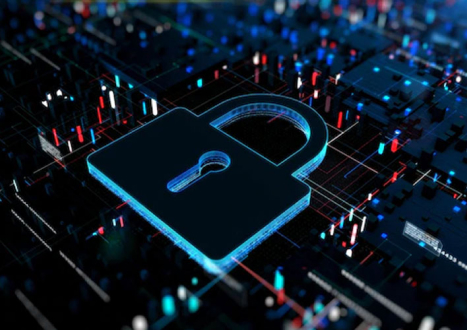- Home
- Video Courses
- Certifications
- NSE4_FGT-7.2: Fortinet NSE 4 - FortiOS 7.2 Dumps


NSE4_FGT-7.2: Fortinet NSE 4 - FortiOS 7.2 Certification Video Training Course
NSE4_FGT-7.2: Fortinet NSE 4 - FortiOS 7.2 Certification Video Training Course includes 118 Lectures which proven in-depth knowledge on all key concepts of the exam. Pass your exam easily and learn everything you need with our NSE4_FGT-7.2: Fortinet NSE 4 - FortiOS 7.2 Certification Training Video Course.
Curriculum for Fortinet NSE4_FGT-7.2 Certification Video Training Course




















NSE4_FGT-7.2: Fortinet NSE 4 - FortiOS 7.2 Certification Video Training Course Info:
The Complete Course from ExamCollection industry leading experts to help you prepare and provides the full 360 solution for self prep including NSE4_FGT-7.2: Fortinet NSE 4 - FortiOS 7.2 Certification Video Training Course, Practice Test Questions and Answers, Study Guide & Exam Dumps.
Latest NSE4_FGT-7.2 Practice Questions and Detailed Answers
Course Overview
The Fortinet NSE4_FGT-7.2 certification validates the skills and knowledge required to configure, manage, and monitor Fortinet security appliances in a corporate or enterprise environment. The certification is part of the broader Fortinet Network Security Expert program that ranges from entry-level knowledge up to highly advanced expertise. This particular exam focuses on the FortiGate firewall platform, version 7.2, which is widely deployed across industries as a robust solution for network security, threat prevention, and secure connectivity.
Importance of This Certification in the Cybersecurity Landscape
With the growing demand for professionals who can secure complex network infrastructures, the NSE4_FGT-7.2 certification is regarded as a benchmark credential for network administrators and security engineers. It ensures that a candidate not only understands the theoretical aspects of security management but also has the practical ability to implement firewall policies, configure VPNs, and troubleshoot common problems in live environments.
Learning Objectives of the Course
The primary objective of this training course is to equip learners with in-depth knowledge of FortiGate’s security features and administrative tools. By the end of this course, students will understand how to configure firewall policies, manage user authentication, implement VPNs, optimize system performance, and secure networks against evolving threats. The course also prepares learners to confidently approach the exam by simulating real-world scenarios and providing detailed explanations of the key concepts tested.
Target Audience for This Training
This course is designed for network security professionals, system administrators, IT managers, and anyone responsible for securing enterprise networks using Fortinet solutions. It is also suitable for candidates who aspire to expand their careers in cybersecurity, gain recognition in the industry, or pursue higher-level Fortinet certifications.
Scope and Coverage of the Course
The course covers both theoretical foundations and practical applications. Topics include firewall concepts, network address translation, intrusion prevention, virtual private networks, user authentication, high availability, routing strategies, logging and monitoring, and troubleshooting approaches. Each section builds on the previous one, gradually expanding the learner’s expertise from fundamental concepts to advanced implementation techniques.
Structure and Delivery of Training
The training is divided into four parts, each focusing on a critical aspect of the certification journey. The structure is designed for progressive learning, beginning with an overview and moving toward technical details and application. Practical exercises, case studies, and exam-oriented discussions are interwoven throughout the course to ensure comprehension and readiness.
Expected Outcomes of Completing the Course
Upon completion, learners will not only be prepared to take and pass the NSE4_FGT-7.2 exam but will also be equipped with practical skills that can be applied immediately in professional settings. They will gain confidence in configuring firewalls, implementing secure network designs, and addressing vulnerabilities that threaten enterprise infrastructures.
The Role of Hands-On Practice in This Course
While theoretical knowledge forms the foundation of learning, hands-on practice plays a crucial role in this training. Learners are encouraged to simulate configurations on virtual FortiGate appliances or in lab environments to reinforce concepts. This approach ensures that students transition from passive understanding to active problem-solving, which is vital in both exam performance and real-world scenarios.
Course Modules
Introduction to Course Modules
The course is divided into multiple modules, each designed to build essential knowledge and gradually advance toward more complex topics. Every module combines conceptual explanations with configuration exercises and real-world examples. The modules have been crafted to ensure learners develop a complete understanding of Fortinet technologies as tested in the NSE4_FGT-7.2 exam.
Module One: Fundamentals of FortiGate Firewalls
This module introduces learners to the FortiGate security appliance and its role in securing enterprise networks. Students explore the device’s architecture, operating system, and fundamental concepts such as security profiles, interface configuration, and basic policy creation. Emphasis is placed on understanding the graphical user interface and command line interface, both of which are critical for administrative tasks.
Module Two: Firewall Policies and Network Address Translation
In this module, learners study firewall policy creation and enforcement, as well as the concept of traffic inspection. They explore how FortiGate processes packets, evaluates policy rules, and applies security profiles to ensure safe data transmission. Network address translation is explained in detail, with examples of how to configure source and destination NAT to support secure communication across networks.
Module Three: User Authentication and Identity Management
The ability to authenticate users and manage identity-based policies is essential in modern network environments. This module delves into authentication methods, including local, remote, and two-factor authentication. Learners study integration with LDAP, RADIUS, and single sign-on systems to streamline access management. Practical exercises reinforce how authentication policies can be applied to enforce role-based security.
Module Four: Virtual Private Networks
This module provides a detailed exploration of VPN technologies supported by FortiGate appliances. Students learn how to configure IPsec VPNs for site-to-site connectivity and SSL VPNs for secure remote access. Configuration examples highlight encryption methods, key exchange protocols, and troubleshooting techniques for common VPN issues. By mastering VPNs, learners develop the ability to connect distributed offices and remote users securely.
Module Five: Intrusion Prevention and Application Control
FortiGate’s strength lies in its ability to protect against advanced threats. This module covers intrusion prevention systems, deep packet inspection, and application control features. Learners study how to configure and monitor IPS signatures, enforce application-level controls, and use threat intelligence feeds to protect networks from malicious activity.
Module Six: Logging, Monitoring, and Reporting
Security is incomplete without effective monitoring and reporting. This module teaches learners how to configure log settings, integrate FortiAnalyzer for advanced reporting, and interpret security event data. Students explore how monitoring tools help identify suspicious activity, generate compliance reports, and maintain visibility across the enterprise.
Module Seven: Routing, High Availability, and Advanced Features
This module focuses on advanced network configurations, including static and dynamic routing protocols such as OSPF and BGP. Learners explore high availability configurations, clustering methods, and failover scenarios to ensure uninterrupted services. Advanced features such as virtual domains and traffic shaping are also introduced to expand administrative control.
Module Eight: System Maintenance and Troubleshooting
The final module of the course focuses on maintenance practices and troubleshooting skills. Students learn how to back up and restore configurations, apply firmware updates, and use diagnostic commands to resolve issues. Troubleshooting scenarios highlight the systematic approach required to identify root causes and restore system stability.
The Progression of Learning Across Modules
Each module is interconnected, forming a continuous journey of learning. Early modules build a foundation, while later modules expand knowledge and emphasize hands-on practice. This progression mirrors real-world learning, where administrators first master basic concepts before tackling complex tasks in enterprise environments.
Preparing for the Exam Through Module Completion
By the time learners complete all modules, they will be fully prepared to address the range of topics assessed in the NSE4_FGT-7.2 exam. Practice exercises, configuration labs, and conceptual reviews throughout the modules ensure exam readiness and professional competence.
Requirements of the Course
Introduction to Course Requirements
Before beginning any professional certification journey, it is important to understand the requirements that ensure readiness and success. The NSE4_FGT-7.2 exam is not an entry-level test but a certification designed for individuals with some background in networking and security. Therefore, this course specifies a set of requirements that learners should meet in terms of knowledge, skills, technical resources, and learning environment. Meeting these requirements ensures that the training is effective, the exam preparation is focused, and the outcome is successful.
General Knowledge Prerequisites
Students enrolling in this course should possess a solid understanding of basic networking concepts. Familiarity with TCP/IP addressing, subnetting, routing principles, and switching technologies is necessary to grasp how the FortiGate firewall processes traffic. Without this background, learners may struggle with foundational concepts such as interface configuration, NAT rules, or routing policies. Basic knowledge of security principles such as access control, encryption, and authentication also forms an essential prerequisite.
Professional Experience Expectations
While it is possible to begin this course with minimal work experience, learners benefit most if they have prior exposure to network administration or system security tasks. Experience with managing routers, switches, or firewalls enhances comprehension of FortiGate features. Professionals who have already worked with security devices will find it easier to transition their skills to the Fortinet ecosystem, while newcomers may need additional practice time to adapt.
Familiarity with Command Line Interfaces
Although the FortiGate appliance offers a graphical user interface, many advanced configurations and troubleshooting tasks require command line skills. Learners are expected to have some familiarity with CLI environments, even if not specific to FortiGate. Comfort with entering commands, interpreting system outputs, and navigating directory structures is highly beneficial.
Software and Hardware Requirements
To gain hands-on practice, learners should have access to FortiGate appliances, either physical devices or virtualized versions running on hypervisors. Virtual machines allow learners to configure lab environments without investing in costly hardware. A modern computer with sufficient processing power, memory, and storage is required to run FortiGate virtual appliances smoothly. Stable internet connectivity is also necessary to access course materials, updates, and online practice resources.
Laboratory Environment Setup
One of the most important requirements of this course is a dedicated lab environment where learners can practice configurations and test scenarios. The lab may be set up using FortiGate VM images, network emulation tools, and basic switching or routing devices. Learners should prepare a space that allows them to simulate enterprise conditions, including internal and external networks, VPN connections, and high availability configurations. A well-structured lab ensures that theoretical learning is reinforced with practical application.
Software Tools and Utilities for Training
In addition to the FortiGate operating system, learners should install supporting software tools to monitor and test their configurations. Network analyzers, packet capture utilities, and secure shell clients are invaluable for troubleshooting and validating firewall behavior. Log analysis tools and reporting utilities help learners understand how security data is collected and interpreted. These tools form an important part of the requirements for effective practice.
Academic and Study Preparation
Beyond technical prerequisites, learners should prepare academically for the demands of this course. The NSE4_FGT-7.2 exam covers a wide range of topics, and success requires disciplined study habits, structured reading, and repeated review of complex concepts. Learners should be prepared to dedicate regular study time and engage with the material actively rather than passively. The requirement for academic commitment ensures that students build strong retention and confidence before the exam.
Time Commitment for Learning
The course is designed to be intensive and requires a significant investment of time. Learners should plan to dedicate consistent hours weekly to cover theoretical lessons, perform lab exercises, and review practice questions. Without adequate time commitment, learners risk progressing too quickly through modules without achieving mastery. This requirement ensures that students progress at a pace that supports deep understanding and readiness.
Access to Official Documentation
An essential requirement for learners is access to Fortinet’s official documentation and knowledge base. While this training course covers the necessary concepts in detail, the official documentation provides authoritative reference material and updates that may appear in the exam. Learners are expected to become familiar with using guides, release notes, and knowledge base articles as part of their preparation.
Language and Communication Skills
The NSE4_FGT-7.2 exam is conducted in English, which means learners must have adequate proficiency in reading and understanding technical English. The course material, exam questions, and practical labs all rely on precise interpretation of instructions. Strong communication skills also support collaboration in professional settings where security teams must coordinate responses to incidents or policy changes.
Discipline in Practical Exercises
Theoretical knowledge without practice is insufficient to pass the exam or to succeed in real-world scenarios. A requirement of this course is the discipline to complete all lab exercises and repeat them until configurations are performed with confidence. Learners must practice troubleshooting systematically, as this skill is directly tested in the exam and regularly required in professional environments.
Mindset for Problem Solving
This course requires a mindset oriented toward problem solving. Firewall configurations and security policies often present unexpected challenges, and learners must develop patience and analytical thinking to address them. The requirement for a problem-solving approach ensures that learners are prepared to tackle both exam questions and operational difficulties with confidence.
Dedication to Continuous Learning
The NSE4_FGT-7.2 certification represents a point on a larger journey of professional growth. Learners are expected to commit not only to completing this course but also to continuous learning in the field of network security. This mindset ensures that the certification is not seen as a final destination but as part of a lifelong pursuit of expertise.
The Role of Mentorship and Guidance
Learners benefit from seeking guidance from instructors, mentors, or experienced colleagues. While the course is self-contained, the requirement of mentorship encourages learners to engage with others who can provide feedback, clarify doubts, and share real-world experiences. This interaction strengthens understanding and enhances preparation for both the exam and professional responsibilities.
Requirements for Exam Registration
In addition to course requirements, learners must meet the conditions set by Fortinet for exam registration. This includes creating a Fortinet account, scheduling the exam through authorized testing centers, and paying the associated fees. Familiarity with these administrative requirements ensures that learners are not surprised by logistical issues as they near exam readiness.
Personal Motivation and Goal Setting
Perhaps the most important requirement is personal motivation. The NSE4_FGT-7.2 exam is rigorous, and only those with clear goals and determination are likely to succeed. Learners must set personal objectives for completing the course, passing the exam, and applying the knowledge to their careers. This intrinsic motivation sustains focus through challenging study sessions and demanding practice labs.
The Balance Between Theory and Application
A requirement of this course is the balance between theoretical understanding and practical application. Learners should not attempt to memorize information mechanically but instead strive to understand how concepts apply in real scenarios. This balanced approach ensures that knowledge is both exam-relevant and professionally useful.
Preparing the Learning Environment
Learners must ensure that their study environment is conducive to focused learning. This includes minimizing distractions, maintaining reliable access to online resources, and organizing study schedules. A dedicated learning space reinforces discipline and supports the sustained concentration required for complex technical topics.
Commitment to Ethical Use of Knowledge
Finally, a critical requirement of this course is a commitment to ethical use of the knowledge gained. Fortinet technologies are powerful tools that can protect but also, if misused, potentially harm networks. Learners are expected to apply their knowledge responsibly, adhering to industry standards, legal regulations, and organizational policies. This ethical requirement aligns with the responsibility inherent in becoming a certified network security professional.
Course Description
Introduction to the Course Description
The NSE4_FGT-7.2 training course is a structured program designed to prepare learners for one of the most recognized certifications in network security. The course combines theoretical insights, practical exercises, and exam-focused discussions into a cohesive learning experience. Its design is not limited to academic study but extends into practical application, ensuring that learners acquire skills that are directly transferable to real-world environments.
Core Purpose of the Course
The main purpose of this course is to bridge the gap between foundational networking knowledge and specialized expertise in Fortinet security solutions. Learners are guided step by step through the essential capabilities of FortiGate firewalls, gaining both a conceptual understanding of how security features work and the technical proficiency to implement them. By the end of the course, students are equipped to confidently configure, manage, and troubleshoot Fortinet appliances in diverse enterprise scenarios.
Structure of the Learning Journey
The course is divided into four main parts, each addressing a critical dimension of the NSE4_FGT-7.2 exam. The structure follows a logical progression, beginning with broad overviews, moving into technical requirements, and advancing toward detailed application and exam strategies. Learners are encouraged to treat the course as a guided journey rather than a series of disconnected lessons. This ensures continuity and the steady accumulation of expertise.
Practical Emphasis in Training
Although theoretical understanding is vital, the emphasis of this course is on practice. FortiGate appliances are designed for real-world deployment, and therefore the training replicates real conditions through simulated labs. Each module introduces concepts and then transitions into demonstrations and exercises where learners configure policies, test connectivity, and resolve issues. The hands-on approach ensures that the skills gained are not only sufficient for passing the exam but also effective in workplace environments.
Relevance of the Course to Industry Standards
The NSE4_FGT-7.2 certification reflects the latest version of FortiGate software, which incorporates advanced features and updated security capabilities. This ensures that learners are not preparing for outdated technologies but for current and relevant solutions. The course aligns with industry standards for secure network management, making it applicable across sectors such as finance, healthcare, government, and enterprise IT.
Integration with Broader Learning Goals
For many learners, the NSE4_FGT-7.2 certification is not an endpoint but part of a broader career trajectory in cybersecurity. This course supports those goals by establishing a strong foundation for further study. Learners who complete the program can pursue advanced Fortinet certifications or branch into specialized areas such as secure SD-WAN, zero trust architecture, or network automation.
Coverage of Key Exam Domains
The course is carefully aligned with the exam blueprint, ensuring comprehensive coverage of all domains. Topics such as firewall policies, user authentication, VPN implementation, intrusion prevention, logging, monitoring, and troubleshooting are presented in depth. Each domain is not treated as an isolated area but as part of a holistic understanding of secure network management.
Adaptability of the Training Program
The course is designed to accommodate learners with varying levels of experience. While some participants may come with years of professional exposure, others may be relative newcomers. The material is presented in a way that supports incremental learning, allowing beginners to catch up while offering advanced insights for experienced practitioners.
Expected Learning Outcomes
By the end of the course, learners will be able to design secure firewall policies, configure network address translation, integrate user authentication systems, implement secure VPN connections, deploy intrusion prevention systems, monitor security events, manage routing, and troubleshoot system issues. These outcomes are not just theoretical achievements but practical competencies that align with the responsibilities of a network security professional.
Who This Course Is For
Introduction to the Target Audience
The NSE4_FGT-7.2 training course is designed for a wide audience of professionals and learners who share the goal of advancing their skills in network security. While the certification itself targets those working in technical roles, the knowledge gained from the course extends its value to managers, consultants, and aspiring cybersecurity specialists.
Network Security Engineers
The primary audience for this course is network security engineers who are responsible for designing, implementing, and managing secure infrastructures. These professionals need in-depth knowledge of firewalls, VPNs, intrusion prevention, and monitoring systems, all of which are covered in detail in this program. For them, the certification validates their expertise and enhances their professional credibility.
System and Network Administrators
System administrators and network administrators who manage day-to-day IT operations will also find this course essential. The FortiGate firewall is often at the heart of enterprise security, and administrators must know how to configure it effectively. This training equips them with the tools to manage firewall policies, optimize performance, and secure networks against unauthorized access.
IT Managers and Team Leaders
Although IT managers may not configure firewalls directly, they must understand the principles behind network security in order to lead teams effectively. This course provides managers with the insight necessary to evaluate security practices, oversee implementations, and ensure compliance with organizational policies. For managers, the certification represents both technical knowledge and leadership competence.
Cybersecurity Enthusiasts and Career Changers
The course is also suitable for individuals seeking to transition into cybersecurity careers. Those with backgrounds in general IT, software development, or even non-technical fields can use this training as a gateway into network security. The structured modules allow newcomers to gradually build knowledge, while practical labs provide the confidence to apply what they learn.
Consultants and Freelancers
Independent consultants and freelancers who provide network security services will benefit from the course by gaining credibility through certification. Their clients often require assurance that consultants are certified professionals capable of securing sensitive infrastructures. Completing this course demonstrates competence and enhances marketability in a competitive field.
Students and Recent Graduates
Students and recent graduates entering the IT and cybersecurity industries can use this course to differentiate themselves from peers. Academic studies often provide theoretical knowledge but lack the practical focus of certification training. By pursuing the NSE4_FGT-7.2 certification early in their careers, students can demonstrate readiness for professional roles.
Organizations and Enterprises
Beyond individuals, organizations also benefit when their staff enrolls in this course. Enterprises that invest in training employees on Fortinet technologies improve the security posture of their networks and reduce vulnerability to threats. This course serves as a valuable program for internal training and professional development within companies.
Professionals Seeking Career Advancement
Many learners pursue the NSE4_FGT-7.2 certification as part of their career advancement strategy. By completing this course, professionals increase their eligibility for higher-paying roles, promotions, and specialized responsibilities. Employers often view certified individuals as valuable assets capable of managing critical security infrastructure.
Learners with Global Aspirations
Since Fortinet technologies are deployed worldwide, this course also appeals to professionals seeking international opportunities. The certification is globally recognized, making it useful for learners who aspire to work in multinational corporations or in countries where Fortinet solutions are heavily implemented.
Continuous Learners and Technology Enthusiasts
Finally, the course is well-suited for individuals who have a passion for continuous learning. Technology evolves rapidly, and those who thrive on keeping up with the latest advancements will find the NSE4_FGT-7.2 training intellectually rewarding. It provides them with a solid platform to stay ahead in the fast-changing cybersecurity landscape.
Student Feedback
Similar Fortinet Video Courses








Only Registered Members Can Download VCE Files or View Training Courses
Please fill out your email address below in order to Download VCE files or view Training Courses. Registration is Free and Easy - you simply need to provide an email address.
- Trusted By 1.2M IT Certification Candidates Every Month
- VCE Files Simulate Real Exam Environment
- Instant Download After Registration.
Log into your ExamCollection Account
Please Log In to download VCE file or view Training Course
Only registered Examcollection.com members can download vce files or view training courses.




